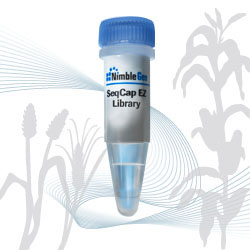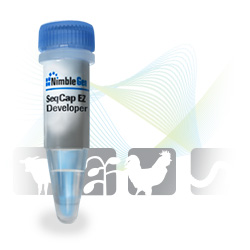While researchers are currently able to perform whole-transcriptome sequencing (RNA-Seq) to evaluate expression levels, variant splicing events, SNPs, and InDels, the standard RNA-Seq approach has significant drawbacks. A major challenge is that many rare events are not detected due to the depth of sequencing necessary to resolve them whereas the overwhelming number of sequencing reads derive from a small subset of highly abundant transcripts.
Dr. Mercer and Dr. Tan will present a novel targeted RNA sequencing method and elaborate on experiences with targeted RNA sequencing that overcomes many of the standard RNA-Seq limitations and achieves unprecedented read coverage, sensitivity and resolution.
Targeted RNA sequencing enables more sensitive gene discovery, more precise measurement of gene abundance, and more accurate isoform assembly. Data will be presented on targeted RNA sequencing to (i) annotate long noncoding RNAs, (ii) profile the expression and aberrant splicing of oncogenes in tumors, (iii) discover new genes in ‘empty’ disease-associated genome intervals and (iv) map transient RNA intermediates in the splicing pathway. For instance, an analysis of transcription from human chromosome 21 reveals a massive abundance and diversity of splicing, coding and noncoding RNAs, well beyond current annotations. Further comparison to the syntenic mouse transcriptome distinguishes the evolutionary forces shaping this transcriptional and regulatory complexity.
Speakers

Timothy R. Mercer, PhD, Lab Head - Transcriptomic Research, The Garvan Institute of Medical Research, Australia
Dr Tim Mercer completed his PhD at the University of Queensland with Prof John Mattick, where he undertook early research into noncoding RNAs making notable contributions to the recognition of long noncoding RNAs as a new class of genes. He has also undertaken research at the Broad Institute (Boston), Max Planck (Dresden) and Centre for Genome Regulation (Barcelona).
Dr Mercer continues research at the Garvan Institute, with interests in genome and RNA biology (noncoding RNAs, gene organization, expression and splicing), and bioinformatic and sequencing innovations.

John Tan, PhD, Senior Scientist – Sequence Capture, Roche NimbleGen
Dr. John Tan holds a PhD degree from the Department of Biological Sciences at the University of Notre Dame, and a Bachelor’s degree in Computer Science from the University of North Carolina-Asheville. Previously, he was Managing Director of the Notre Dame Genomics Core Facility and a Research Assistant Professor in association with the Eck Institute for Global Health and Department of Biological Sciences at the University of Notre Dame. He has contributed to work published in journals including Genome Biology, Nature, and Science, with a focus on malaria and infectious disease research.
John joined Roche NimbleGen in 2013 where he he has served as project lead for the KAPA library prep kit, SeqCap adapter kit, and SeqCap RNA Enrichment Kit launches.
Who Should Attend?
Genetics and genomics researchers, principle investigators, laboratory scientists, genome center directors, clinical and translational researchers, cancer/oncology researchers, agricultural genetic researchers.
Xtalks Partner
Roche
Roche NimbleGen is an innovator in the life sciences market focused on research activities and manufacturing target enrichment probe pools for DNA sequencing. Capitalizing on the efficiencies inherent with parallel enrichment, researchers can now design economical, high throughput, and time-saving next-generation sequencing experiments. Next-generation sequencing combined with Sequence Capture probe pools offers researchers a clearer understanding of genomic structure and function in order to understand the impact of genes on biological processes. We are part of the innovations in sequencing solutions for life science research, now and in the future.
Media Partner
You Must Login To Register for this Free Webinar
Already have an account? LOGIN HERE. If you don’t have an account you need to create a free account.
Create Account





